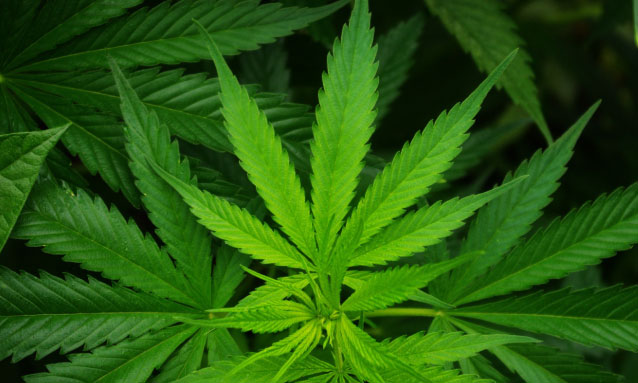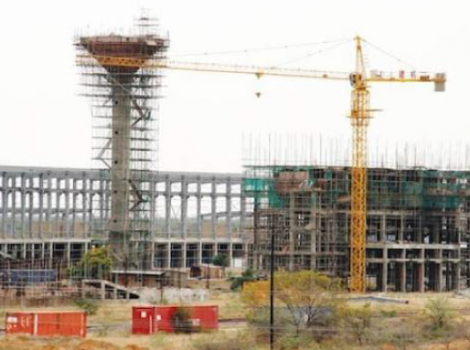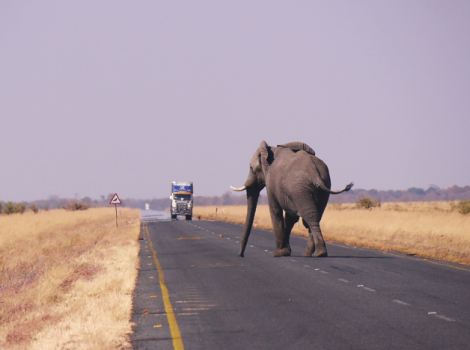
The country’s largest business lobby, Business Botswana has proposed for the government to investigate the introduction of the cannabis family of crops as a cash boost and diversification strategy for agriculture, according to Mmegi.
Cannabis, in its various forms, is a prohibited substance in Botswana, although more voices have urged the government to consider legalising the farming of hemp for medicinal and industrial use. While the government spends billions on agriculture (inputs, training and drought relief), the sector has struggled to contribute meaningfully to the economy over the decades, leaving the country largely dependent on imports for most of its requirements.
Business Botswana, the government’s official partner in economic policy, recently drafted a 50-page “Recovery Plan for the Private Sector,” giving its recommendations on how the country could shake off the effects of COVID-19 and restructure the economy. The document, prepared in partnership with the United Nations Development Programme, lists numerous proposals for economic diversification, business facilitation and revenue generation. Cannabis cropping is among these.
“(The Government should) undertake the requisite research to inform any necessary reviews of legislation to facilitate the diversification of agriculture into high-value cash crops such as cannabis,” the document proposes.
Under the heading “Regulatory Reforms” Business Botswana proposes that an investigation be conducted into the “desirability of legislation to facilitate the diversification of agriculture into high-value cash crops such as those in the cannabis family.”
Several African countries have joined the race to cash in on the cannabis family of plants, most notably Lesotho, which is fast-tracking the licencing of various ventures as a way of shoring up government revenues, creating employment and diversifying its economy. Business Botswana’s proposals were developed with the input of several high-ranking officials from the finance and trade ministries, as well as other experts, such as those at the United Nation’s Food and Agriculture Organisation.
The lobby group has ranked the urgency of its proposed reforms and places the cannabis recommendations amongst those that should be implemented urgently, between this year and 2021. Business Botswana recommends that the finance and trade ministries, as well as public enterprises, should lead the investigation into the new cash crops.
Although government officials were involved in the production of Business Botswana’s proposals, the cannabis recommendation does not appear in the final Economic Recovery and Transformation Plan (ERTP) presented by the finance ministry to legislators recently.
While the ERTP acknowledges that financial support needs to be redirected to commercial agriculture from subsistence schemes and that higher agricultural productivity would be a “quick win” for self-sufficiency improving the balance of payments, job creation, it focuses on the schemes to be supported, rather than identifying specific crops.
“Despite historical problems in developing agricultural production, it is felt that the country has the potential for higher agricultural output and faster growth,” the ERTP reads.
“It is proposed that interventions should focus on commercialisation and increasing the scale of agricultural production, with a different and social support approach to subsistence farming.
“The proposed interventions need to be assessed to evaluate their commercial feasibility. They are included here (in the ERTP) subject to confirmation that their benefits exceed their costs.
“The necessary feasibility studies will be taken immediately.”
The ERTP is proposing that support be given to areas with proven agricultural potential such as Barolong Farms, Pandamatenga and Tuli Block and projects such as the Zambezi Integrated Agro-Commercial Development Project. Local farming journalist, Aobakwe Gofamodimo says cannabis farming is not something local farmers are talking about yet. He says while the concept is intriguing, the experience of other countries has shown that cannabis farming involves high-access costs and may not be a major employment creator for Batswana.
“It’s not that any farmer will be able to do it, that an old lady with her field in a village will take it up,” he says.
“From Lesotho to the US, the licences for hemp farming are set very high and the cropping methods required are quite expensive ranging from greenhouses to tunnels.
“It’s a good idea to talk about, but we could end up seeing Batswana being more consumers than producers.”
Gofamodimo’s concerns on costs appear confirmed by the fact that Botswana’s pioneering hemp farm, a project in Kanngwe, was developed by a South African company, which injected millions of pula. The project was suspended in 2019 after the exemption permit the company secured to allow them to farm the hemp was revoked by the Agriculture Ministry.
“Batswana struggle to raise P200,000 for a small stock project. Where would they get millions for a hemp project?” Gofamodimo wonders.
Business Botswana will be expecting some of these answers to come from the “the requisite research” it is asking the government to conduct into the cannabis family.
Fight to farm hemp turns legal
Fresh Standard, the company that says the Agriculture Ministry exempted them to farm hemp in Kanngwe before the Narcotics Squad raided it, is suing the government for the right to restart production of the cash crop.
Fresh Standard Director, Barend Daniel de Beer says he invested millions of pula in the project based on an exemption granted by the former Agriculture Minister, Patrick Ralotsia, only for the police to raid and uproot his fledgeling crops last May.
At that point, the company had purchased and planted 30 various cannabis sativa (hemp) seeds to assess which strain would thrive in the conditions on the farm, which belonged to Ralotsia. The company, which had bought seeds valued at over €90,000 and had signed an offtake agreement to produce 5,000 litres of hemp oil per month. Hemp, or industrial hemp, is known as a variety of the cannabis sativa plant species that is grown specifically for the industrial or medicinal use of its derived products. The police uprooted and confiscated the young plants, arguing that the exemption had been withdrawn and the crop was actually dagga, a prohibited drug with psychedelic effects.
In documents before the High Court, de Beer wants the revocation of the permit reviewed and set aside. The case is scheduled for December 3, 2020. de Beer is represented by McErick Attorneys, who have since briefed Advocate Duma Boko to lead the application.
de Beer says in October 2018, he received the exemption to grow, process and produce products from cannabis sativa and hemp dominant strands for medical and industrial purposes in the country.
The director says following the granting of the exemption, he spent millions of pula establishing the business with the knowledge of the Ministry and the then minister and his permanent secretary (PS).
“On or about May 7, 2019 representatives of the Narcotics Squad of the Police arrived at the farm where I had planted the crop in greenhouse tunnels. They uprooted the plants and removed them from the farm,” reads de Beer’s founding affidavit.
He said the move by the government forced him to make an urgent enquiry as to why this happened as the company was operating lawfully and that he later obtained a copy of a letter from the Ministry dated March 29, 2019, signed by the PS withdrawing the exemption. de Beer contends that the communication about the withdrawal was illegal in that it was contrary to the empowering statute and unreasonable because the decision was made without affording him any form of hearing despite the serious effect that the decision had on his business.
According to his documents, de Beer explained that the interest to grow the plant was for the economic benefit of the country and that he had numerous meetings with the then Minister as he explained the plant, its use and benefits while making his interest clear about wanting to produce it.
“Following meetings with the then Minister, the PS and representatives of the ministry, on September 7, 2018, the PS signed a letter sent to me which reads, ‘The ministry of agriculture has no objection to Fresh Standard a registered company in Botswana.”
de Beer said he later received another letter informing him that the Ministry had embraced his proposal and indicated that it would assist where possible for various accesses to available lands through various initiatives and schemes in the country. He said from all the letters he received thereafter and their discussions with the Minister, he knew that Ralotsia was the one who approved the arrangement.
“For that reason, towards the end of December 2018, we commenced with the pilot project. Purchased and planted 30 different cannabis sativa seeds to assess which strain would thrive in the conditions on the minister’s farm,” he said.
de Beer said after things took off and the minister, PS and other representatives had visited the farm on several occasions and showing interest in the project, matters took a different turn. He pointed out that law enforcement officers visited and two police officers were deployed to secure the cultivation and later the plants were uprooted and that there was confirmation from the Botswana Police Service through its Narcotics, Flaura and Fauna Department that the crop was ‘motekwane’ (cannabis).
“Later, I was given a copy of the report from the Chief Forensic Scientific Officer based at the Police Forensic Laboratory in Gaborone. She confirmed that the plants were cannabis. This is, of course, surprising because the report does not, however, analyse the THC content of the plants,” he said.
de Beer’s contended that the PS knew that significant money had been invested in the project and that the minister granted permission for the exemption. He also argued that Fresh Standard was not granted any opportunity to be heard on the matter and the current minister has declined their requests to meet with him.
“I submit that the withdrawal of March 29, 2019 by the Ministry of Agriculture was unfair, unprofessional and unlawful. Further, that if the PS made the decision, he had no authority to withdraw the exemption without the Minister’s directive and or authority.
This will be established in the record of the rules of court,” he said.
The case is expected to spark debate on hemp production in the country. The government has sent out mixed signals on the issue over the years.
Source: http://www.mmegi.bw/index.php?aid=86737&dir=2020/august/21



